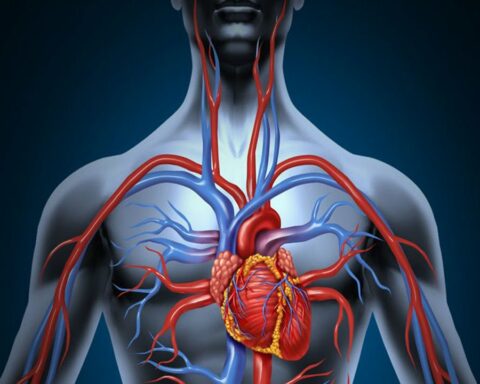Marine foods, including fish, are some of the healthiest foods on the planet. Apart from being a delicious meal, most fish contain heart-healthy fats known as omega-3 fatty acids. Omega-3s in fish oil can benefit your health immensely, but too much of it is questionable.
The commonly known types of omega-3 fatty acids are alpha-linolenic acid (APA), docosahexaenoic acid (DHA), and eicosapentaenoic acid (EPA). Each of them has specific health benefits, including supporting brain health and improving the immune system. APA is mostly found in plant-based foods like seeds and nuts, while DHA and EPA are primarily found in fish like salmon and mackerel. While they may benefit your health, taking excess omega-3 fatty acids in fish oil may harm your health and cause severe side effects. This article shows the potential side effects of eating too much of these oils.
1. May Increase Your Blood Sugar Levels
Impaired blood sugar control is a common problem in people living with diabetes. For that reason, they are usually advised to avoid certain foods that can increase blood sugar. Studies indicate that taking too many supplements of omega-3 fatty acids can lead to high blood sugar in people with diabetes. For example, taking just 8 g of omega-3 fatty acids every day can increase blood sugar in diabetic people by up to 22% within eight weeks only. This is because, at high doses, omega-3 fatty acids can stimulate your body to produce more glucose which can lead to chronically elevated blood sugar levels.
2. May Promote Bleeding
The probable confirmatory side effects of too much fish oil are nosebleeds and bleeding gums. Taking about 640 mg of fish oil supplement per day can lower blood clotting in adults. Studies suggest that omega-3 fatty acids contain some compounds which interact directly with blood, thus thinning it down. If you are scheduled for a surgical operation, it will help to stop consuming fish oil. It is also advisable that you consult your doctor first before taking supplements if you are on Warfarin or any other blood thinners.
3. May Lead to Hypotension
Hypotension or low blood pressure is a rare heart problem, but some foods like fish oil may aggravate it. Researchers agree that higher doses of omega-3 fatty acids can lead to decreased systolic and diastolic blood pressure. Other studies show that fish oil can help people with high blood pressure lower their blood pressure levels and cholesterol. This is due to its blood-pressure-lowering mechanism. However, for those with low blood pressure, fish oil can cause severe health problems and should thus be avoided. It is worth mentioning that fish oil can also increase the effectiveness of medications used to lower blood pressure. It may thus help to talk with your doctor about this concern.
4. Fish Oil and Diarrhea
Another common side effect associated with taking too much fish oil is diarrhea. Many people who take higher doses of fish oil usually present with diarrhea, flatulence, and increased bowel transit. Diarrhea is not only common with fish oil but also with nearly all types of omega-3 supplements. For example, vegetarians usually replace fish oil with flaxseed oil which has also been reported to elicit laxative effects and may increase intestinal transit. You may need to reduce your intake of omega-3 fatty acids and take it with meals if you start passing loose stool.
5. May Aggravate Acid Reflux
Fish oil is a bit lenient to your health than any other oil. However, complaints of heartburn have been reported by some beginners on fish oil supplements. To understand this, you need to know that fat is a good trigger of indigestion. For that reason, many people taking too much fish oil may complain of other symptoms of acid reflux, including stomach discomfort, belching, and nausea. To prevent acid reflux and reduce its symptoms with fish oil, you may want to take your supplements with meals and in moderation. It may also help to spread your dose throughout the day in divided doses to do away with indigestion.
6. Associated with Stroke
Researchers have also found that too much fish oil may lead to hemorrhagic stroke. When blood vessels in your brain weaken, they can easily rupture and bleed in the brain, cutting blood supply to some parts of the brain leading to hemorrhagic stroke. Animal studies indicate that too much omega-3 fatty acids can thin down blood and reduce its clotting ability, which increases your risk of hemorrhagic stroke. However, some studies have yielded conflicting results claiming that fish oil cannot lead to hemorrhagic stroke. For that reason, more studies need to be carried out on humans to come up with conclusive and agreeing results.
7. Can Cause Vitamin A Toxicity
Some manufacturers of omega-3 fatty acid supplements add high amounts of vitamin A to these supplements. If vitamin A is consumed in large doses, it can accumulate to toxic levels. Consuming just 14 g of cord liver oil can supply up to 270% of the daily recommended intake for vitamin A in a single serving. Symptoms of vitamin A include nausea, dizziness, skin rashes and irritation, and nausea. It can even lead to liver damage if consumed for a long time.
8. Lack of Sleep (Insomnia)
If taken in moderate doses, fish oil can improve your sleep quality. Supplementing children with 600 mg of omega-3 fatty acids per day for four months can help improve their sleep quality. However, overdosing with fish oil can interfere with sleep in some cases, which can lead to insomnia. If you already have a sleeping problem or chronic anxiety, it will help to take moderate amounts of fish oil.
The Recommended Daily Intake of Omega-3 Fatty Acids
Watching your intake of omega-3 fatty acids and fish oil may help prevent and reduce the severity of the side effects stated above. The U.S Dietary Guideline of 2015 recommends that you should take at least 250-500 mg of DHA and EPA every day.
Conclusion
Omega-3 fatty acids are important fats when it comes to protecting your heart and general health. Taking too much of these fats, however, can lead to adverse health problems, including hemorrhagic stroke and bleeding.
Credits
We would like to thank the below contributors who have helped us to write this article:









